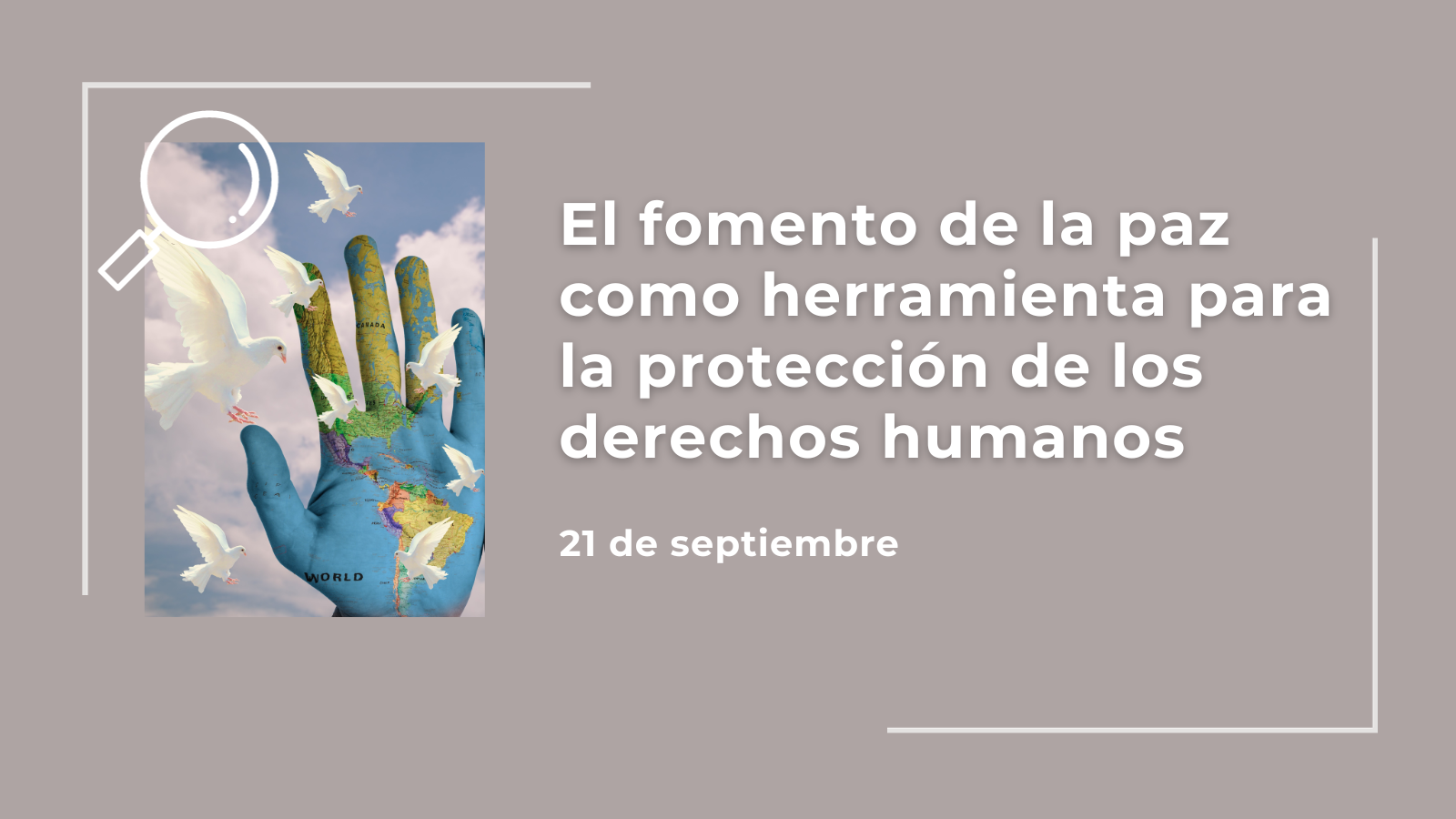
International Day of Peace: promoting peace as a tool for the protection of human rights.
Every year since 1981, the International Day of Peace has been celebrated worldwide on September 21. The initiative was born in the General Assembly of the United Nations, as a reminder of the promotion of peace as one of the main purposes set forth in the Charter of the United Nations. It is materialized for the first time in the resolution of the Assembly 36/67 of November 30, 1981, to raise again in 2001 the date as a day dedicated to the cessation of violence and cease-fire of the conflicts that haunt our societies on a daily basis.
As the United Nations has pointed out over the years, peace means not only the cessation of armed violence, but also creating the necessary conditions for every human being to be respected, without suffering any discrimination based on religion, sex or race. Therefore, the Assembly, in its resolution 55/282, invites to commemorate this day through educational and public awareness activities that promote peaceful values among citizens and institutions.
By promoting reflection and advocacy on these issues, the UN wants to emphasize the different ways in which violence manifests itself in our societies. We cannot forget that problems such as the increase in refugees and the existence of armed conflicts in many countries are linked to a question of racial discrimination. This continually pushes millions of people to expose themselves to situations of vulnerability and suffering, which is a direct interference with their human rights.
In 2023, we have seen an armed conflict break out near the European borders. The war in Ukraine has taught us that violence as a substitute for dialogue can only create misery and suffering. In February 2023, one year after the beginning of the war, the UN estimate of casualties amounted to 18,955 civilian casualties. Afghanistan, Ethiopia and the Democratic Republic of Congo are clear examples of failures to achieve peace.
Today we must remember that promoting peace is not only a duty of States, but also of all citizens, that in our daily lives and in all our relationships we must consolidate an atmosphere of dialogue that avoids violent conflict. Thus, peace stands as a fundamental element for the functioning of our institutions and relationships, and for the realization of the human rights of all people.
In addition, global problems such as the consequences of climate change are having a greater impact on countries that were already suffering from other types of unfavorable situations, such as armed conflicts or economic poverty. At the same time, the lack of resources and natural disasters aggravate and facilitate the emergence of new conflicts, once again provoking a greater state of vulnerability. Continuing to advance in the struggle for human rights and the promotion of peace also means protecting the land we inhabit.
Protecting human rights means maintaining environmental and economic conditions that ensure that every human being has access to the rights enshrined in the Universal Declaration of Human Rights. If we want peace to become a reality and rights to go beyond mere abstract concepts and ideals, we need to work in a wide range of areas. Poverty, racism, discrimination, natural disasters or human conflicts are all similar factors that affect the construction of a peaceful world.
For this reason, FIBGAR has been promoting the construction of peaceful states in order to protect and enforce human rights. Thus, with projects such as DEC we educate on how the crisis caused by climate change directly affects human rights and how international cooperation is necessary to curb its impacts, since the environmental crisis mainly affects the most vulnerable populations and those with the least resources, and undermines democracy and peace in the territory.
Laura María Cabello Pérez, colaboradora de FIBGAR.



